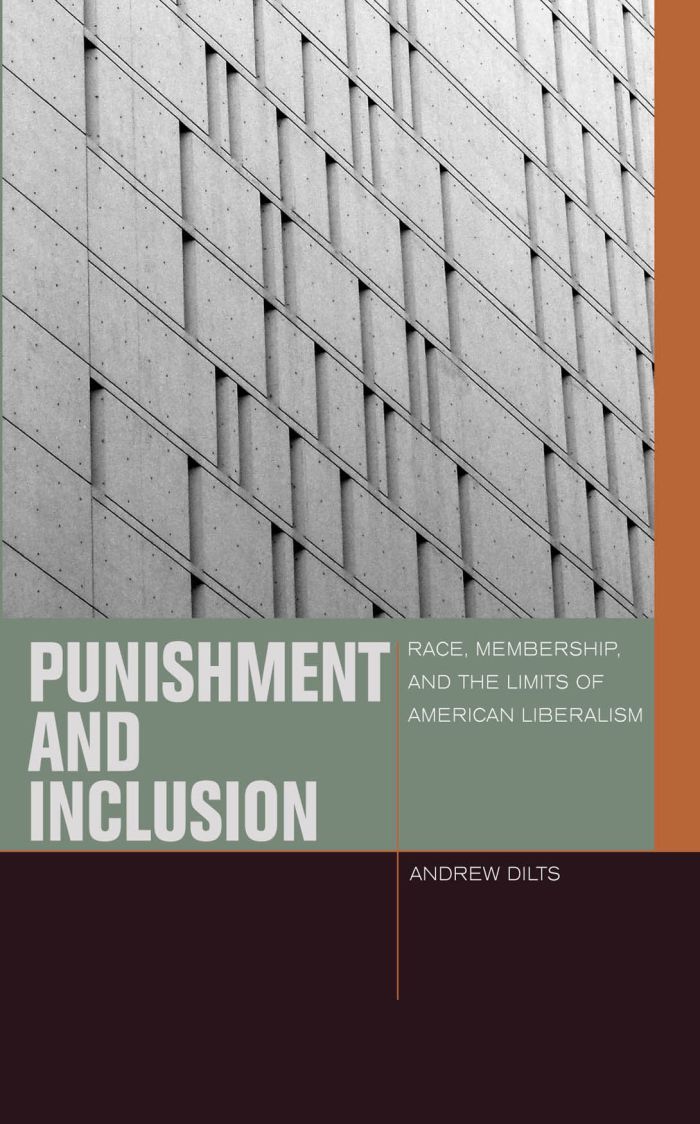Punishment and Inclusion
Race, Membership, and the Limits of American Liberalism

This book can be opened with

At the start of the twenty-first century, 1 percent of the U.S. population is behind bars. An additional 3 percent is on parole or probation. In all but two states, incarcerated felons cannot vote, and in three states felon disenfranchisement is for life. More than 5 million adult Americans cannot vote because of a felony-class criminal conviction, meaning that more than 2 percent of otherwise eligible voters are stripped of their political rights. Nationally, fully a third of the disenfranchised are African American, effectively disenfranchising 8 percent of all African Americans in the United States. In Alabama, Kentucky, and Florida, one in every five adult African Americans cannot vote.
Punishment and Inclusion gives a theoretical and historical account of this pernicious practice of felon disenfranchisement, drawing widely on early modern political philosophy, continental and postcolonial political thought, critical race theory, feminist philosophy, disability theory, critical legal studies, and archival research into state constitutional conventions. It demonstrates that the history of felon disenfranchisement, rooted in postslavery restrictions on suffrage and the contemporaneous emergence of the modern “American” penal system, reveals the deep connections between two political institutions often thought to be separate, showing the work of membership done by the criminal punishment system and the work of punishment done by the electoral franchise.
Felon disenfranchisement is a symptom of the tension that persists in democratic politics between membership and punishment. This book shows how this tension is managed via the persistence of white supremacy in contemporary regimes of punishment and governance.
In Punishment and Inclusion: Race, Membership, and the Limits of American Liberalism Andrew Dilts provides a careful, committed, and compelling analysis of connections between race, disenfranchisement, and punishment in the US.——Daniel C. Shartin, Radical Philosophy Review
“In the United States today, approximately 5.8 million people have lost the right to vote due to a felony conviction. The disenfranchisement rate, like the incarceration rate, is starkly racialized: 1 in 13 African Americans are excluded from voting, compared to 1 in 56 Americans of other races… Punishment and Inclusion is a must-read for anyone who wants to understand how this situation came to be, and how the practice of felon disenfranchisement (re)produces extreme racial inequality through a colorblind criminal legal system.”——Theory & Event
Punishment and Inclusion: Race, Membership, and the Limits of American Liberalism is a powerful, remarkable book. It insightfully explores the nexus of punishment, disenfranchisement, and racism in the United States. Dilts calls on all of us to rethink our longstanding practice of felony disenfranchisement. His argument is subtle and thoroughly convincing. Written in an engaging and lucid style, it is truly a pleasure to read this book.——Austin Sarat, Amherst College
“This book pulls from many different disciplines, perspectives, and sources to construct a compelling argument about the status of American democracy today. It applies theoretical sophistication to these sources while maintaining a strong political commitment. This is a combination that is all too rare in the field of political and legal theory today!”——Keally McBride, University of San Francisco
...because this study is so theoretically rich, practically engaged, and filled with
—Leonard C. Feldman, —Law, Culture, and the Humanities
critical insight, it invites a host of follow-up questions, suggestive for future research growing out of this work.

